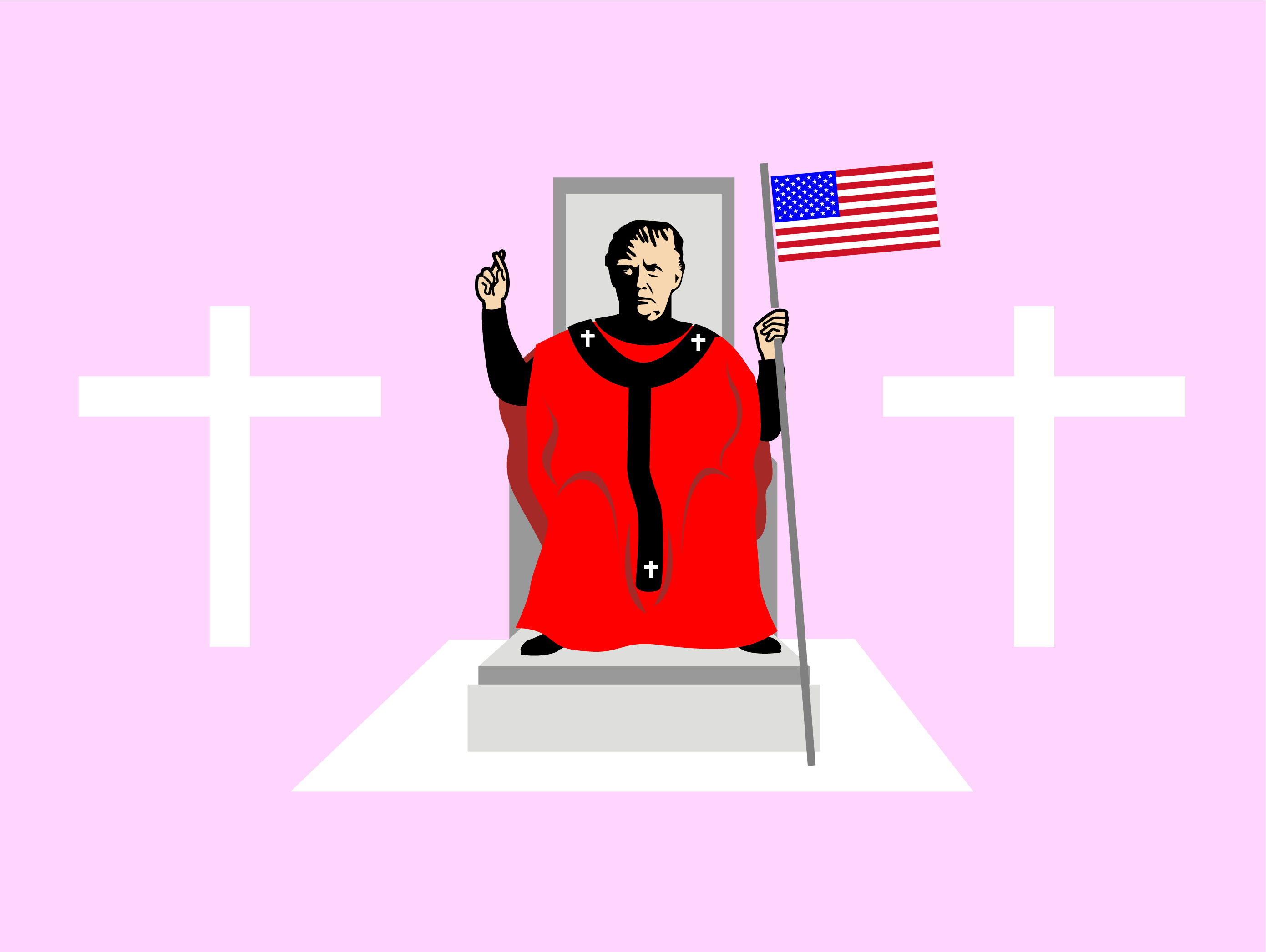Southern Baptist minister and devoted Trump devotee Rev. Robert Jeffress declared on Tuesday that God has given Trump the “authority” to attack North Korea—but many of his fellow Christians aren’t so sure.
Just hours after the president ominously declared that threats from North Korea will be “met with fire and fury like the world has never seen,” First Baptist Church in Dallas pastor Jeffress released a statement to the Christian Broadcasting Network that sought to add spiritual weight to Trump’s rhetoric.
“When it comes to how we should deal with evil doers, the Bible, in the book of Romans, is very clear: God has endowed rulers full power to use whatever means necessary — including war — to stop evil,” the statement read. “In the case of North Korea, God has given Trump authority to take out Kim Jong-Un. I’m heartened to see that our president — contrary to what we’ve seen with past administrations who have taken, at best, a sheepish stance toward dictators and oppressors — will not tolerate any threat against the American people. When President Trump draws a red line, he will not erase it, move it, or back away from it. Thank God for a President who is serious about protecting our country.”
God has endowed rulers full power to use whatever means necessary — including war — to stop evil. https://t.co/6E60XLNVQP
— Dr. Robert Jeffress (@robertjeffress) August 8, 2017
Jeffress appears to be referencing Romans 13, which details how Christians should submit to governing authorities because they have been “instituted by God.” But his use of this passage appears to be selective, at least in spirit: Jeffress, who is known for firebrand statements, declared in 2012 that his parishioners shouldn’t vote for then-president Obama because he “is paving the way for the future reign of the Antichrist.”
Moreover, Jeffress’s theological interpretation of military use is highly disputed within Christianity, where views on violence range from religious pacifism (e.g., Quakers, Amish, Mennonites) to “just war” theology (Roman Catholics and many Protestants), among others. Some point to Christ’s call not to “live by the sword” as proof of nonviolence, among other biblical passages: As the Independent Journal Review pointed out, Romans 12:17—in the the chapter immediately preceding the scripture Jeffress references—declares “do not repay anyone evil for evil.”
To wit, progressive Christian leaders in particular were quick to challenge Jeffress.
“Dr. Jeffress’ reckless statement is an endorsement of a theology of war and in my opinion as a minister in the United Church of Christ is in direct contradiction to the teachings of Jesus, the prince of peace,” he wrote.
Progressive Christian theologian Diana Butler Bass also took to Twitter to note that Rev. Billy Graham, a famous conservative evangelist, pushed for nuclear disarmament, arguing in 1979 that “God is not interested in destruction, but redemption.”
The evangelicals advising Trump would do well to remember that Billy Graham worked for nuclear freeze in 1980s. From @Sojourners Aug 1979: pic.twitter.com/PAWolhkFq9
— Diana Butler Bass (@dianabutlerbass) August 9, 2017
Christian author and peace activist Shane Claiborne also weighed in:
"Nationalism is a religion and war is its liturgy."
~ Stanley Hauerwas https://t.co/JYJRztSxGA
— Shane Claiborne (@ShaneClaiborne) August 9, 2017
And popular Christian author Rachel Held Evans:
Even if you subscribe to just war theory, how in the world is dropping nuclear bombs on millions of civilians "just"?!
— Rachel Held Evans (@rachelheldevans) August 9, 2017
James K. A. Smith—a Calvin College professor who has clout with both conservatives and some progressives—did not appear impressed with Jeffress on Wednesday.
But at least Robert Jeffress is "orthodox," right?
Quite the shop you're running there, SBC.
— James K.A. Smith (@james_ka_smith) August 9, 2017
By contrast, right-wing Christian leaders appeared more reticent to voice agreement with Jeffress—although Jack Graham, who previously served on Trump’s Evangelical Advisory Board during his presidential campaign, offered a more measured version of his rhetoric.
Like every president before him @realDonaldTrump prays for peace but prepares to protect our nation. This is not rhetoric-it is real https://t.co/uABxlbw9xj
— Jack Graham (@jackngraham) August 9, 2017
Johnnie Moore, a former Vice-President of Liberty University who has been active within evangelical efforts to support Trump, tweeted out a response that roughly aligned with traditional “just war” theology.
Pray a/b N. Korea!
FOR PEACE, not war & – with trepidation – for our leaders to know FOR SURE if the latter becomes required for the former.— Johnnie Moore ن (@JohnnieM) August 9, 2017
Another evangelical leader who has advised Trump, Tony Suarez, did not immediately respond to requests for comment.
The incident is the latest in a long line of controversial statements made by Jeffress, who has positioned himself as one of Trump’s boldest religious allies, often by insisting his presidency is anointed by God. He was the preacher at a church morning convened for Trump on his Inauguration Day, where he delivered a sermon entitled “When God Chooses A Leader”. It was also a choir from Jeffress’ church that recently performed a hymn-style ballad called “Make America Great Again”—a direct reference to Trump’s campaign slogan. Trump has since tweeted out videos that prominently feature the song—twice.
The Texas pastor is part of a growing group of evangelical Christian leaders closing ranks around Trump. Some are more traditional evangelicals, but others like Jeffress espouse aspects of Christian nationalism–a theological subset that, among other things, calls for America be restored as a “Christian nation.” The movement has latched on to Trump as a central figure, often working to bolster his agenda.

